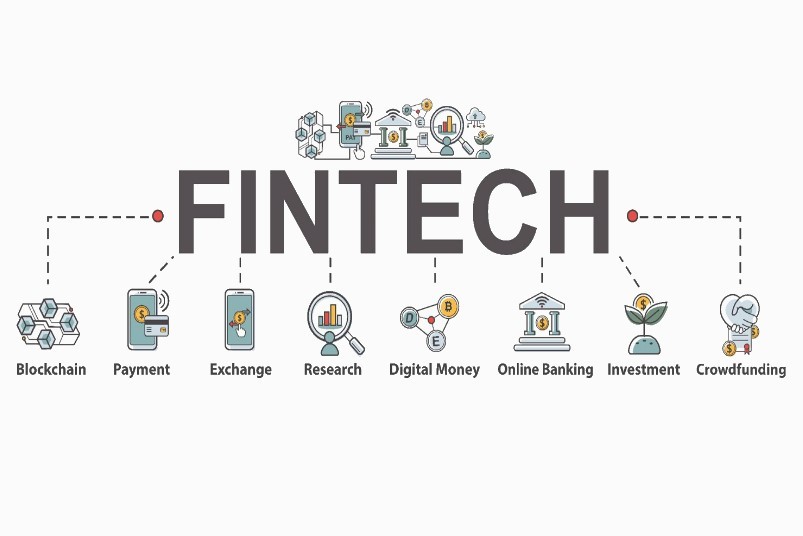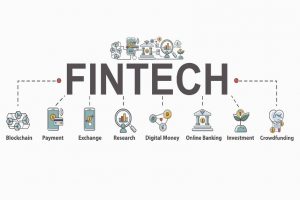Expert Insights into Banking Market Trends for Fintech Innovators
6 min read
Discover the transformative role of Artificial Intelligence (AI) in fintech’s future as we delve into personalized financial services, enhanced fraud prevention, financial inclusion, and sustainable investing. Expert Insights into Banking Market Trends for Fintech Innovators embrace the AI revolution and learn how it’s shaping the evolution of the fintech landscape.
A Glimpse into the Fintech Landscape
The world of finance has experienced a seismic shift over the past decade, with fintech companies taking center stage in shaping the industry’s future. Driven by emerging technologies and a growing demand for personalized financial services, fintech has made significant strides in democratizing access to financial products and services.
Unveiling the AI Revolution in Fintech
Artificial Intelligence (AI) has emerged as a critical driver of innovation in the fintech sector, enabling the development of intelligent and personalized financial solutions. From streamlining operations to transforming customer experiences, AI is at the heart of the future of fintech.
AI-Driven Personalization of Financial Services
The rise of AI has paved the way for a new era of personalized financial services, where customers can access tailored products and services based on their unique needs and preferences. AI-driven tools, such as robo-advisors and automated investment management platforms, are empowering customers to make informed financial decisions with minimal human intervention.
Enhancing Fraud Detection and Prevention
The application of AI in fraud detection and prevention has revolutionized the way financial institutions combat financial crimes. By employing machine learning algorithms, fintech companies can analyze vast amounts of data in real-time, quickly identifying suspicious activities and reducing the risk of financial fraud.
Streamlining Compliance and Regulatory Processes
Navigating the complex web of financial regulations is a challenge for many financial institutions. AI-powered RegTech solutions are simplifying compliance processes and reducing the burden on businesses, allowing them to focus on innovation and growth.
The Emergence of AI-Driven Financial Inclusion
Financial inclusion has long been a challenge for the global financial industry. AI is playing a crucial role in expanding access to financial services for underserved communities, enabling the development of innovative financial products tailored to their specific needs.
Microloans and Alternative Credit Scoring
Traditional credit scoring methods often exclude individuals with limited credit histories. AI-driven alternative credit scoring models are addressing this issue by using alternative data sources, such as social media activity and online transactions, to assess creditworthiness.
Digital Wallets and Mobile Banking
AI-powered digital wallets and mobile banking platforms are making financial services more accessible to individuals in remote or underbanked areas. Expert Insights into Banking Market Trends for Fintech Innovators by providing a seamless user experience and enabling easy access to financial products, these platforms are driving financial inclusion on a global scale.
Fintech’s Sustainability Push: AI and ESG Investing
The growing focus on Environmental, Social, and Governance (ESG) investing is reshaping the financial landscape. AI is playing a vital role in enabling investors to make sustainable investment decisions by analyzing ESG data and providing actionable insights.
AI-Driven ESG Data Analysis
By leveraging AI and machine learning, fintech companies are streamlining the analysis of vast quantities of ESG data, helping investors identify sustainable investment opportunities and manage risk more effectively.
Robo-Advisors for Sustainable Investing
AI-driven robo-advisors are increasingly integrating ESG factors into their investment recommendations, empowering investors to align their financial goals with their values and drive positive social and environmental change.
Preparing for the Future: Embracing AI in Fintech
The future of fintech is intrinsically tied to the ongoing AI revolution. By embracing AI-driven innovations and prioritizing financial inclusion and sustainability, fintech companies will continue to shape the future of finance and unlock new opportunities for growth.
The banking industry is undergoing significant transformation driven by technological advancements and changing consumer expectations. Fintech innovators are at the forefront of this evolution, leveraging technology to create more efficient and customer-centric financial services. Understanding current market trends is crucial for fintech companies aiming to disrupt traditional banking and gain a competitive edge. One of the most prominent trends in the banking sector is the rise of digital banking. Consumers increasingly prefer online and mobile banking solutions over traditional branch visits. This shift is driven by the convenience and accessibility offered by digital platforms. Fintech companies are capitalizing on this trend by developing user-friendly apps and services that cater to the digital-first mindset of modern consumers. Another key trend is the growing importance of data analytics in banking. Banks and fintech firms are harnessing the power of big data to gain insights into customer behavior and preferences. By analyzing transaction data, financial institutions can offer personalized services and targeted marketing campaigns. Expert Insights into Banking Market Trends for Fintech Innovators this data-driven approach enhances customer satisfaction and loyalty, providing a competitive advantage in a crowded market. The integration of artificial intelligence (AI) and machine learning (ML) is also transforming the banking landscape. AI-powered chatbots and virtual assistants are becoming common in customer service, providing quick and efficient responses to queries. Machine learning algorithms are used for fraud detection, risk assessment, and credit scoring, improving the accuracy and efficiency of these processes. Fintech innovators are leveraging AI and ML to streamline operations and enhance the customer experience. Blockchain technology is another trend gaining traction in the banking sector. Blockchain offers a secure and transparent way to conduct transactions, reducing the risk of fraud and enhancing trust. Fintech companies are exploring blockchain applications for cross-border payments, smart contracts, and identity verification. The decentralized nature of blockchain can potentially disrupt traditional banking models, offering more efficient and cost-effective solutions. Open banking is a regulatory trend that is reshaping the banking industry. Open banking initiatives require banks to share customer data with third-party providers, with the customer’s consent. This promotes competition and innovation, allowing fintech companies to develop new services and products. Open banking enables consumers to access a wider range of financial services, fostering a more inclusive and competitive market. The rise of neobanks is another significant trend in the banking sector. Neobanks are digital-only banks that operate without physical branches. They offer a range of financial services through mobile apps and online platforms. Neobanks are gaining popularity due to their low fees, user-friendly interfaces, and innovative features. Fintech innovators are driving the growth of neobanks, challenging traditional banks with their agile and customer-centric approach. Sustainability and social responsibility are becoming increasingly important in the banking industry. Consumers are more conscious of the environmental and social impact of their financial choices. Banks and fintech companies are responding by incorporating sustainability into their business models. Expert Insights into Banking Market Trends for Fintech Innovators this includes offering green financial products, investing in sustainable projects, and promoting financial inclusion. Emphasizing sustainability can enhance a company’s reputation and attract socially conscious customers. Cybersecurity remains a critical concern in the banking sector. As digital banking grows, so does the risk of cyberattacks. Fintech companies must prioritize cybersecurity to protect customer data and maintain trust. This involves implementing robust security measures, such as encryption, multi-factor authentication, and regular security audits. Staying ahead of cyber threats is essential for fintech innovators to ensure the safety and integrity of their services. The regulatory landscape is continually evolving, impacting the operations of banks and fintech companies. Compliance with regulations such as GDPR, PSD2, and AML is crucial for maintaining trust and avoiding penalties. Fintech innovators must stay informed about regulatory changes and adapt their strategies accordingly. Collaborating with regulators can also help shape favorable policies that support innovation and growth. In conclusion, the banking industry is experiencing rapid changes driven by technological advancements and evolving consumer expectations. You can read more Here. Fintech innovators are well-positioned to capitalize on these trends by leveraging digital banking, data analytics, AI, blockchain, open banking, and neobanks. Emphasizing sustainability, prioritizing cybersecurity, and navigating the regulatory landscape are also essential for success. By staying ahead of market trends, fintech companies can disrupt traditional banking and deliver innovative financial solutions that meet the needs of modern consumers.






